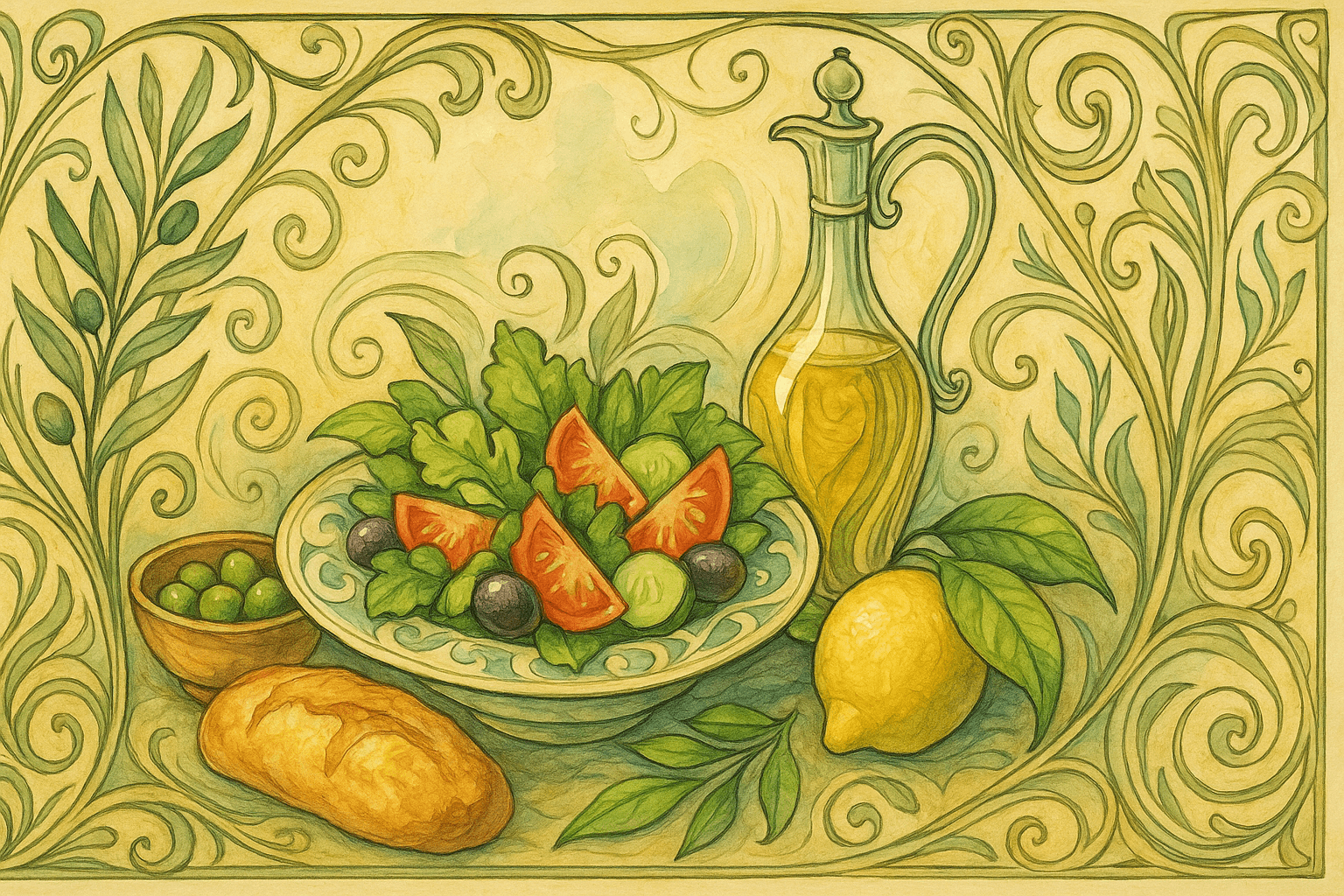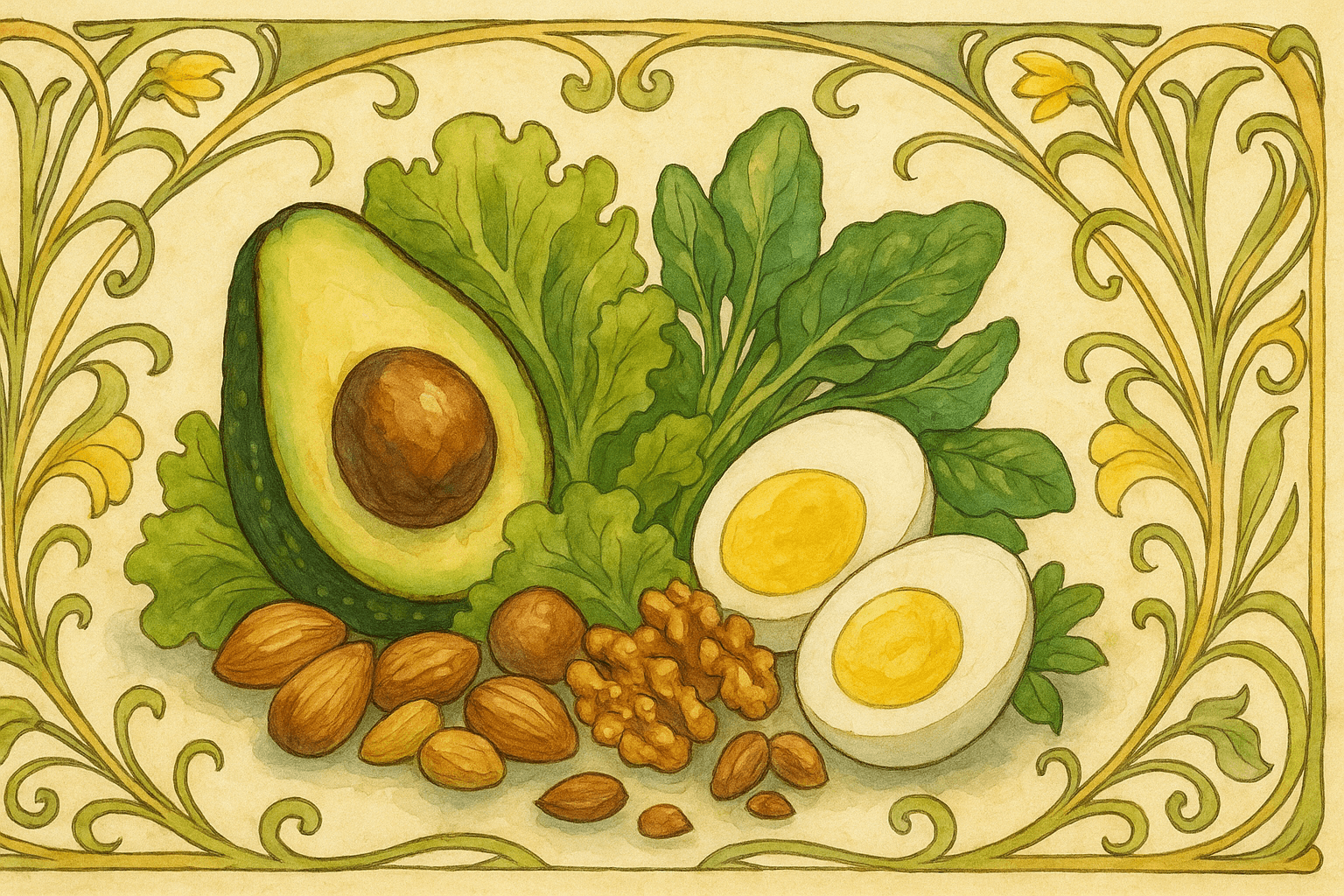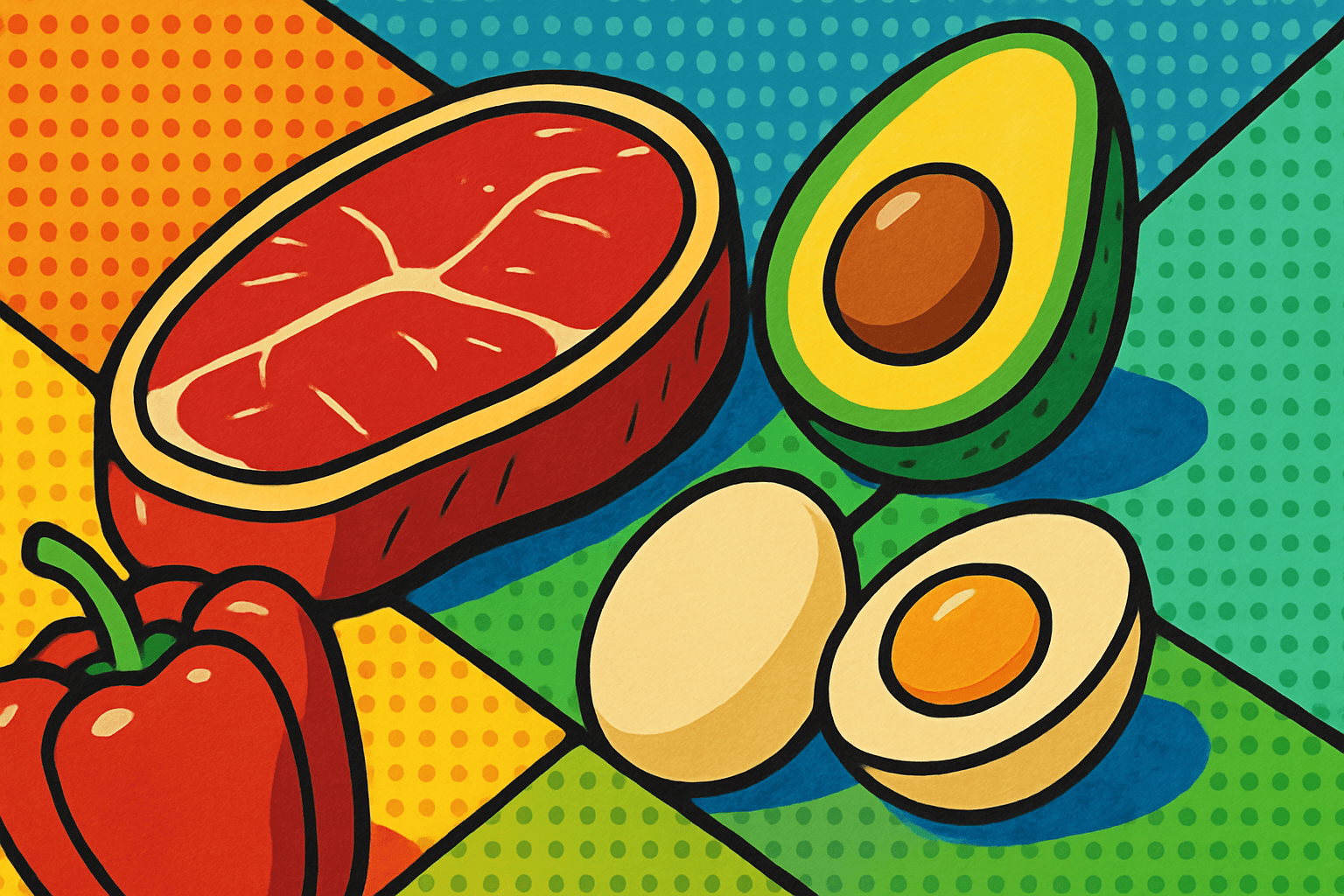THE MEDITERRANEAN DIET: A TIMELESS APPROACH TO HEALTH AND LONGEVITY
Published on July 4, 2025

What Is the Mediterranean Diet?
The Mediterranean diet is a way of eating inspired by the traditional habits of countries like Greece, Italy, and Spain. It focuses on fresh, minimally processed foods, healthy fats, and meals enjoyed in good company.
Key foods include plenty of fruits, vegetables, whole grains, legumes, nuts, and seeds, with extra virgin olive oil as the main source of fat. Fish and seafood are eaten often, while dairy, especially cheese and yogurt, is consumed in moderation. Herbs and spices add flavor without excess salt, and moderate red wine with meals can be part of the lifestyle for those who choose it.
Scientific Evidence and Health Benefits
Large studies like the PREDIMED trial show that following the Mediterranean diet can significantly reduce the risk of heart attacks, strokes, and cardiovascular death compared to typical Western diets.
Main benefits include:
- Improved cholesterol, blood pressure, and lower inflammation
- Better blood sugar control and reduced risk of type 2 diabetes
- Support for brain health and reduced risk of Alzheimer’s and Parkinson’s diseases
- Easier weight management through filling, nutrient-rich foods
- Longer lifespan and reduced risk of chronic diseases seen in Mediterranean populations
Core Elements of the Mediterranean Diet
Olive Oil: Provides healthy monounsaturated fats and antioxidants that support heart health and reduce inflammation.
Fruits and Vegetables: Rich in fiber, vitamins, minerals, and antioxidants; aim for a wide variety of colorful produce daily.
Whole Grains: Foods like brown rice, barley, oats, and whole-wheat bread offer fiber and slow-digesting carbs for stable blood sugar.
Legumes and Nuts: Beans, lentils, chickpeas, and nuts add plant-based protein, fiber, and healthy fats, supporting heart health and satiety.
Fish and Seafood: Fatty fish such as salmon and sardines provide omega-3s for heart and brain health; aim for at least two servings per week.
Moderate Dairy: Fermented dairy like yogurt and cheese supply protein, calcium, and beneficial probiotics.
Herbs and Spices: Add flavor and antioxidants while reducing the need for salt.
Moderate Wine Consumption: Up to one glass a day for women, two for men, if medically appropriate; consumed with meals.
How to Start the Mediterranean Diet
- Replace butter or margarine with extra virgin olive oil
- Eat at least five servings of vegetables and fruits daily
- Choose whole grains over refined grains
- Add beans, lentils, or chickpeas to meals several times a week
- Include fish in your diet at least twice weekly
- Limit red meat to occasional, lean cuts
- Use herbs and spices instead of salt for seasoning
- Share meals with family and friends whenever possible
- Stay hydrated with plenty of water
- Drink wine in moderation if it aligns with your health needs
Sample Mediterranean Day
Breakfast: Greek yogurt with walnuts, honey, and fresh berries
Lunch: Whole-grain tabbouleh with chickpeas, cucumbers, tomatoes, parsley, and lemon-olive oil dressing
Snack: Hummus with baby carrots and celery
Dinner: Grilled salmon with sautéed spinach and quinoa
Dessert: Fresh figs or a small piece of dark chocolate
Overcoming Challenges
- Ingredient availability: Use seasonal, local produce to reduce cost and improve freshness
- Cooking skills: Start with easy, familiar recipes and add more complexity over time
- Social setting: Talk to friends and family about your goals for support
- Cultural adaptation: Apply Mediterranean diet principles to your traditional dishes
Final Thoughts
The Mediterranean diet is a sustainable, enjoyable, and research-backed approach to health. By focusing on real foods, healthy fats, and meals shared with others, it nurtures both physical health and emotional well-being, helping you create lasting habits for a healthier life.








